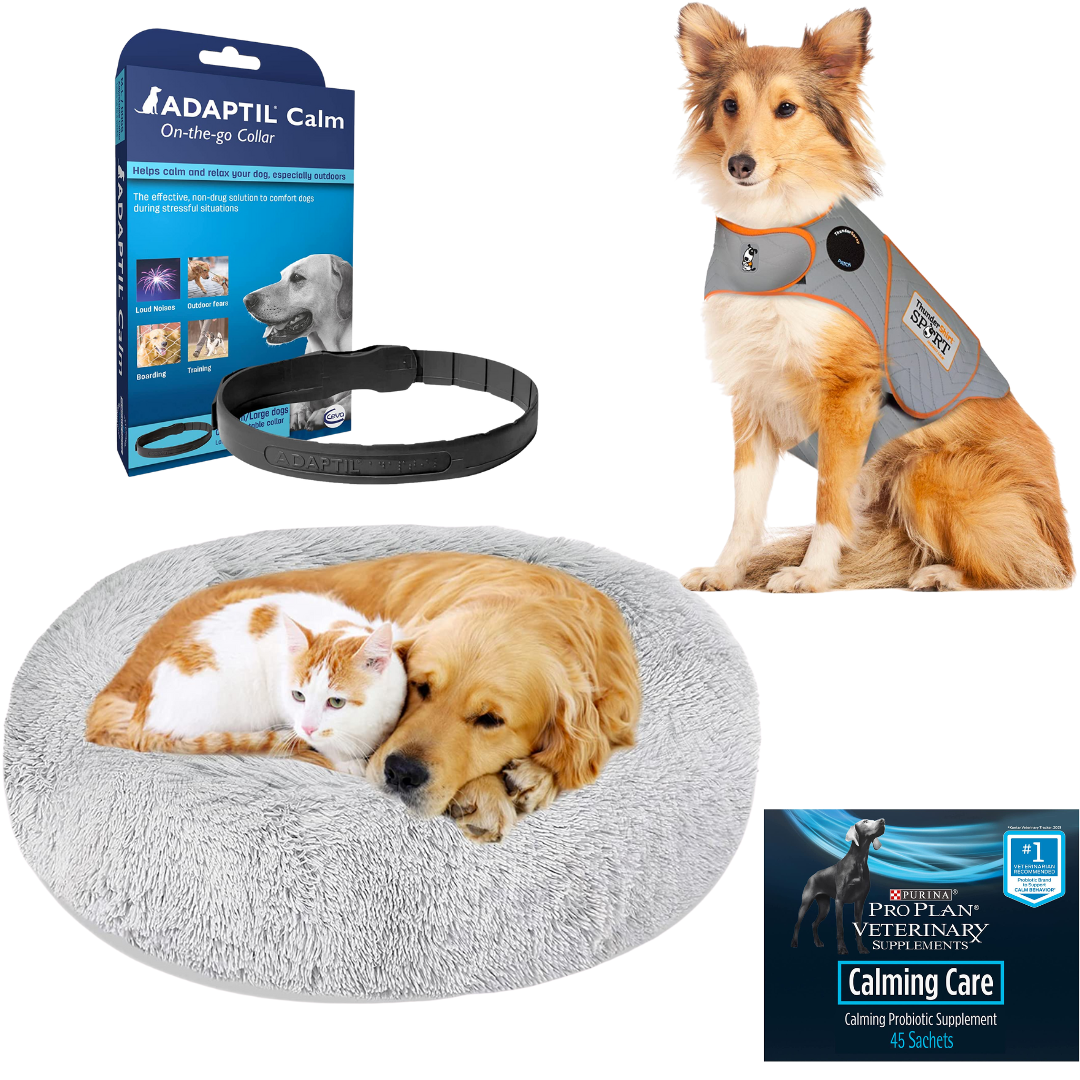What To Do If Your Dog Has Separation Anxiety
Separation anxiety in dogs is a very real problem for many pet owners. Our Golden Doodle showed signs of separation anxiety just weeks after we brought her home as a puppy, and after the pandemic, it’s only gotten worse. Over the years I’ve learned so many tips and tricks for managing it. So, if your fur baby starts to get anxious when you leave them alone, here are some proven methods that can help dogs with separation anxiety. Keep reading to learn more!
Distraction Toys
If your dog’s anxiety is triggered by cues that you are leaving the house – distraction toys come in handy. These special toys are designed to keep your dog’s attention and provide a sense of comfort. We have had luck with treat dispensing balls, the Kong Wobbler, LickiMats (not for aggressive chewers), and frozen Kong treats.
Sound
Our behavior vet taught us that many dogs with separation anxiety are hypervigilant and sensitive to noise (is your dog constantly barking at nothing?). That’s why whenever we leave her alone, we have noise playing. Whether it’s the TV, radio, white noise, or music, it certainly seems to help.
Activity
I hesitate to include this because this advice always bothered me – activity alone will not make your dog’s anxiety go away. But it will hep. Before you plan to leave make sure to throw a ball or take a walk. Your pup will be more apt to lay down or sleep through your absence if they’re worn out. You can also call on neighbors, family, and friends (or apps like Rover) to walk your pup while you’re away.
Daycare
If you have access to a dog daycare near your home, utilize it! Just be sure to tour the facility first and have a trial run to make sure it is a good fit for you and your pup – some facilities are better at handling dogs with anxiety than others.
Dog Food
We see a behavior vet who informed us about the link between anxiety and GI issues (which our dog also has). After trying countless dog foods, we finally found one that works and that we love (and that our dog will scarf down in seconds) – Farmer’s Dog. This food has completely changed our lives. Not only has our dog’s anxiety decreased, but her GI issues have also resolved. We’ve also noticed a shinier coat, fresher breath, and more energy!
CBD
After trial and error, we have finally found a CBD product that works for us. We like ElleVet Sciences because they are the only product hat has been clinically proven for dogs (this is in no way sponsored, just a huge fan). We use their chews and situational chews.
Anxiety Products
There is certainly no one-size-fits-all solution with anxiety, especially anxiety products, but here are some ones that we have had luck with: Calming Dog Bed, Calming Probiotic (especially if your pup also has GI issues), and ThunderShirt. Here are some others that are for dogs with less severe anxiety: HeartBeat Toy (not for aggressive chewers) and Calming Collar.
It May Be Time to Call on an Expert
I remember the first time I saw our dog have a panic attack. We had only been gone for five minutes, but she was already pacing and panting, her whole body shaking. I felt so guilty, like I had failed her somehow. She would hurt herself and destroy things in our home. I swore that I would do whatever it took to help her, but I didn’t realize how hard it would be. We tried everything from over-the-counter solutions to expensive daily training and dog walking, but nothing seemed to help. Finally, and after much hesitation, I made the decision to see a behavior vet. It was the best decision we ever made. Our dog needed an expert and medication. If you are in this position, please don’t feel any guilt or shame, having a dog with separation anxiety is hard, harder than most people realize, and you are only doing your best. It’s your job to protect them and sometimes this is the only way.
Tips: Your regular vet will likely have recommendations for a behavior vet in your area.
If you are in Michigan, we have seen Dr. Hopfensperger at the Michigan State University Veterinary Medical Center for 3+ years. She saved my dog’s life and I couldn’t recommend her more highly.
There are a number of different things you can do to help your dog with separation anxiety. We hope that this post has shown you that you are not alone and it is not your fault. You are a good pet owner for trying to make your dog healthier and happier. What separation anxiety tools have worked for you? Please share them in the comments below so we can all learn from each other.






